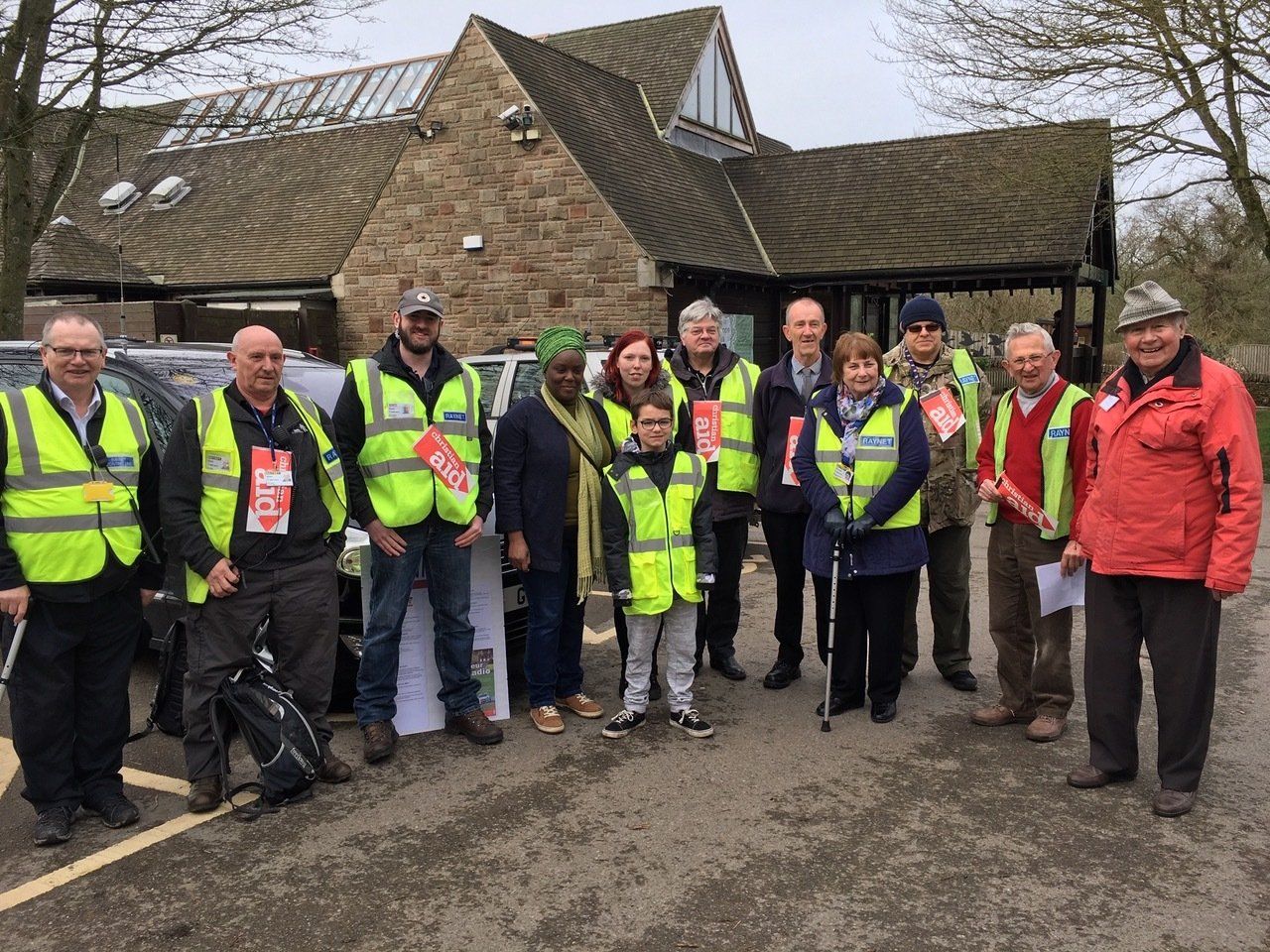What We Do
An Introduction
What have we done?
RAYNET has provided additional
communications at major incidents involving aircraft, trains, flooding, evacuations,
telephone exchange failures, missing
persons searches, adverse weather, oil/chemical pollution etc. Examples include: Lockerbie disaster, missing person in Staffordshire Moorlands, Rickerscote train crash, fire watching on Cannock Chase
We have also provided safety communications for large-scale community events, such as:
- Le Grand Depart (2014 Tour de France)
- Long Distance Walkers Association 100-mile events
- Many charity cycle rides, fun runs and community events
- Long-distance walks and orienteering
- Endurance horse rides
- Fire watch in vulnerable areas during extreme weather
Whom do we do it for?
RAYNET, under the terms of the amateur radio licence, is permitted to pass messages on behalf of
- Any UK Police force, Fire & Rescue service or Ambulance trust.
- Maritime and Coastguard Agency
- Local Authority Emergency Planning/Resilience Officers
- Any health authority
- Any government department
- British Red Cross
- St John Ambulance
- St Andrew’s Ambulance Association
- RVS
- Salvation Army
- Any utility service
How are we organised?
RAYNET comprises a national network of local groups, who liaise with emergency
services, local authorities and other voluntary agencies who could be involved in the integrated management response to major civil emergencies.
Groups are supported by a County/Regional, Zonal and National structure.
All registered members of RAYNET-UK whilst on duty are covered by "Public Liability" & "Employers Liability" insurance, together with Personal Accident Insurance under
policies held nationally.
How do we train?
Groups work with the emergency services and local authority emergency planning units on both live exercises and table-top simulations. It is, of course, important to have “hands on” experience regularly and throughout the year, carry out training to nationally agreed standards.
RAYNET personnel provide additional safety communications for local fun runs,
marathons, car rallies and a wide variety of events, whereby message passing, engineering skills and operational procedures can be tried and tested.
What can we offer?
In times of major civil emergency, existing communications can become rapidly overloaded RAYNET can offer additional flexible communication links to complement established systems
Members come from a variety of backgrounds and bring with them a wide range of skills, knowledge and expertise.
Established local contacts
A national 24hr emergency contact telephone number (030 30 40 10 80)



